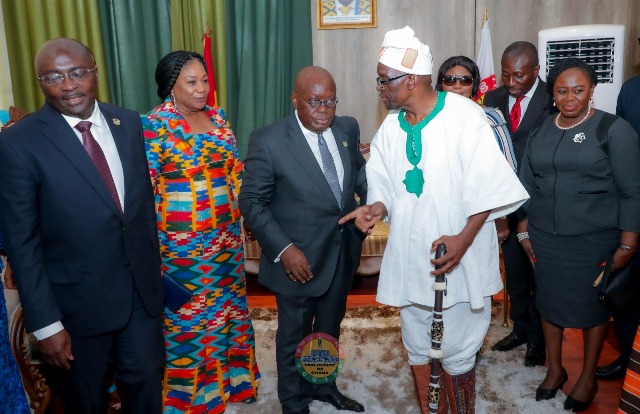Parliament has clarified what it terms ‘misconceptions and misrepresentations’ that have emerged in media reports following President Nana Addo Dankwa Akufo-Addo’s State of the Nation Address (SONA).
The address, which is a constitutional requirement under Article 67, was delivered amidst high anticipation and witnessed by numerous high-profile figures, including First Lady Rebecca Akufo-Addo, Vice President Dr. Mahamudu Bawumia, and former President John Dramani Mahama.
David Sebastian Damoah, Esq., the Director of Media Relations of Parliament, explained in a statement that a potential boycott by Members of the House was successfully averted, allowing the address to go ahead without interruption.
According to him, despite this success, certain media reports created controversy, especially around comments attributed to the Speaker of the House, Mr. Alban S.K. Bagbin regarding the Chief of Staff, Hon. Frema Osei Opare.
Damoah stated that the comments suggesting the Speaker’s endorsement of the Chief of Staff as a ‘beacon of hope’ for Ghanaians were inaccurately reported.
He stated that the Speaker’s remarks were simply an acknowledgement of Frema Opare’s presence and not a political endorsement.
“The introduction of the Chief of Staff by the Speaker was a customary acknowledgement, devoid of any political undertones, contrary to what some media outlets have suggested,” Mr. Damoah clarified.
The statement also addressed criticisms from the Daily Guide newspaper, which accused the Speaker of political bias and blamed him for the initial absence of Minority members.
He countered these claims, asserting that the chamber was nearly full upon the entrance of the Speaker and the President, and emphasized that walkouts and boycotts are standard parliamentary tactics employed globally for negotiation purposes.
Mr. Damoah made a passionate plea for the public to focus on the substantive content of President Akufo-Addo’s message rather than the controversies surrounding it.
He called for a more critical approach to consuming media reports about parliamentary proceedings to enhance public understanding of its roles and functions within the nation’s governance structure.




